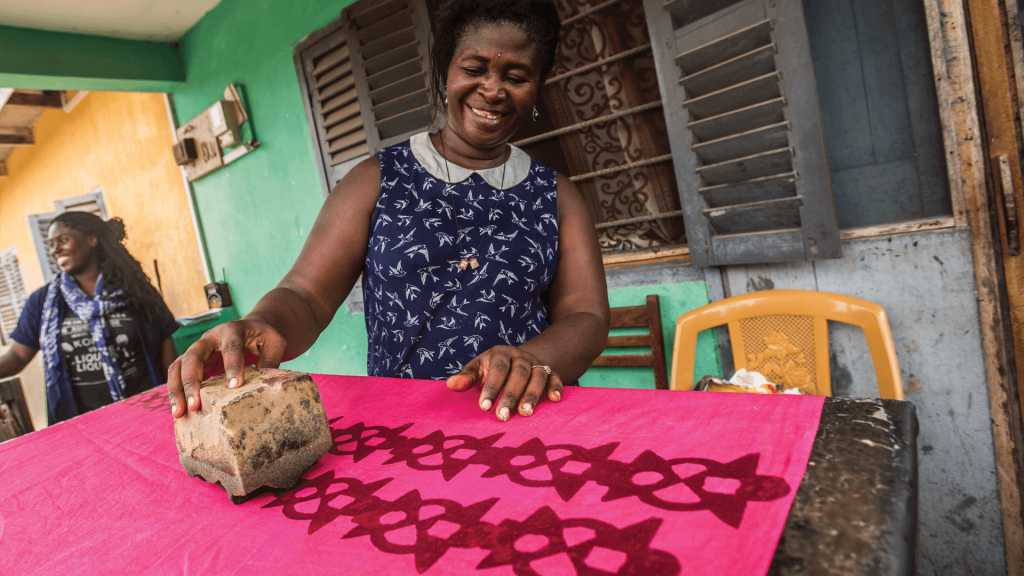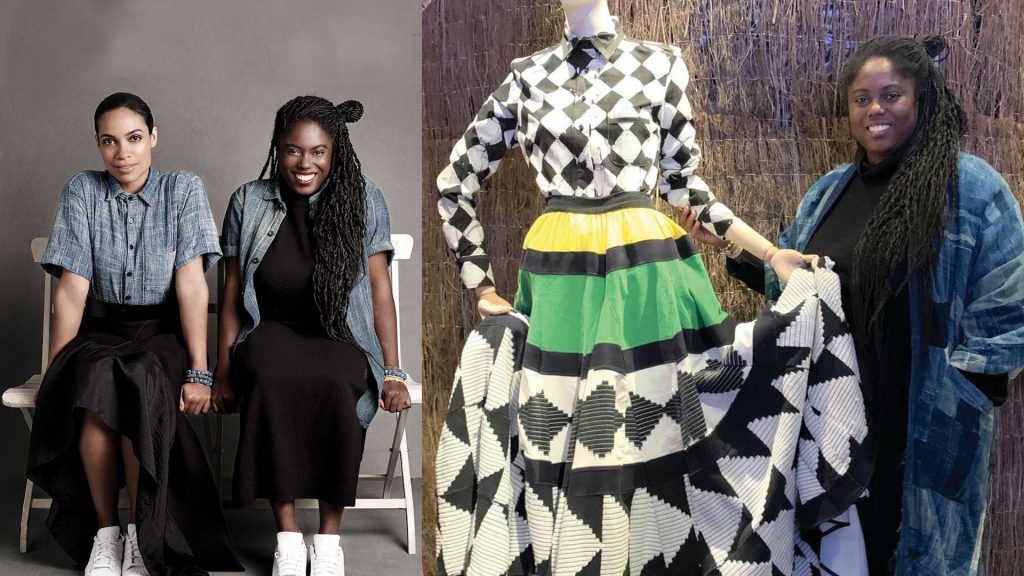Milano Fashion Week took place in mid-February, just days before the coronavirus alert broke out and affected the city’s public transport, shutting down performances at cinemas and theatres, religious services at most churches and public gatherings, including Carnival celebrations.
In fact, Fashion Week was affected too, since all Chinese designers but one, due to open the runway, fell victims of the Asian travel ban and had to forfeit their shows. Furthermore, the grand finale by fashion guru Giorgio Armani on Sunday 23rd February was cancelled as a precautionary measure (later largely criticised for its unnecessary alarmism) amidst concerns of people crowding confined spaces, following breaking news of a hospitalised suspected coronavirus case from a satellite town some kilometres south-east of Milan.
Young exhibitors attended from Hungary, Africa and the Middle East and showcased their creations at a market hub where potential customers could purchase prêt-à-porter or place their tailored order.
Trends for the fall/winter epitomised as flamboyant but wearable in the imagination of a bunch of flourishing designers, with attention to up-cycling, sustainable manufacturing, local identity within the global village, without forsaking classic streamlined darks, soft and matte for the office, velvety, satined and sequinned for the soirées, blessed with flirting transparencies, tapestries and embroideries.
While the Chinese input banked on casual wear in pastel colours and deconstructed tailoring, the Budapest trend focused on fashion’s first commandment ‘black is the new black’, and reinvented absence of colour with textures galore, picking and mixing precious fabrics like velour, chiffon, devoré, lace, mesh, brocade and matching casual to formal, smashing the dress-code ceiling with stonewashed jeans gracing eveningwear as much as beads and frills.
Whether understated or in-your-face, the designer logo becomes an integral part of the pattern, embroidery or print for the Mittel-European fashionista with fast-rising brand Abodi, defining the ‘baroque futurism’ fad. Other Hungarian brands exhibiting were: Cukovy, specialised in puff jackets and sportswear; Elysian, reinventing bridal wear with Magyar flare; dynamic duo Dalma Devenyi and Tibor Kiss who co-founded Je Suis Belle, an artisan-based atelier marrying folklore and literature influences; Zsigmond Dora Menswear, re-introducing Danubean men’s elegance to the western end of the defunct Hapsburg Empire.
Of course the real revelation of the fashion fair, which attracted a fair share of adepts and general public – despite mixed messages about public transport emergency protocols and health & safety etiquette – were the designers out of Africa and the Middle East.
The brain and genius behind Maison ARTC, Artsi Ifrah, will strike a chord with Gibraltarians for his genuine South Mediterranean style. His embroidered kaftans were the stars of the show, borrowing their colours from fruity hues and summery skies, and their shapes from the organic encounter of nature and architecture of fishing villages and oasis-side hamlets. Artsi was born in Jerusalem, lived in Tel Aviv, Paris and Amsterdam, before settling in Marrakesh.
Gozel Green, by Chinelolum Olivia Okoji and Sylvia Ngozi Ojei, is one of the many upcoming made-in-Nigeria brands. The two women source materials and produce their couture locally, bridging past and future in the traditional choice of colours (earthy browns, deep blues from tropical skies, lush greens from the pluvial forest) interwoven with contemporary cuts that are just right for career women and ladies who lunch without giving up on comfort and agility.

The London influence is pretty palpable in Omer Asim’s work, which privileges stark western styles and colours, with a prevalence of monochrome and its infinite shades of grey, creating a severe display for the no-nonsense discerning customer who wants to spell out ‘dressed for success’ in their outfit. The designer claims he doesn’t rely on sketching but creates impromptu on the mannequin itself, and describes his work as ‘regressive future’.
The week-long jamboree included a busy calendar of runway shows by the monoliths in the business, such as Gucci, Moncler, Max Mara, Prada, Bottega Veneta, Fendi, Moschino, Iceberg, Versace, Ferragamo, Boss, Fila, Laura Biagiotti, Jil Sander, Genny, Atsushi Nakashima and much more.
Focus:ON

Studio 189 is an artisan fashion brand based in Ghana and the US, founded by Rosario Dawson and Abrima Erwiah.
I spoke to Abrima. She told me how the philosophy behind her business is turning fashion into a tool for social change, encouraging cottage industry from farm to loom and even further, with distribution and retail.
Their factory is based in Accra, but sourcing and manufacturing reaches out to Mali and Burkina Faso, and offers women and vulnerable members of society access to dignified and regular work in full harmony with the environment and traditional artisanship.
“We build communities, involving farmers, dyers, loom workers, seamstresses, and they create magic. Our fashion is magic because it carries with it the spirit of all the people who touched it in the making.”
Each garment carries the symbolism of tradition and innovation, and she describes her inspiration as ‘tropical’. Surely her artwork isn’t for the wallflower, with bold colours and even bolder pairings.
Abrima is particularly proud of using only natural fibres and dyes, and of the versatility of recycled cotton, shredded and rewoven.
Her flagship craft is a black-and-white triangle-patterned full shirt, hand-woven in coarse yarn: “This is a classic piece that will be cherished for a lifetime.”
And should this skirt feel unpractical for your regular school run or rush hour on the tube, Studio 189, which has participated in countless New York Fashion Weeks, is well renowned for its vegetation-inspired handmade prints and for the azure palette obtained from the indigo plant, almost distilled directly from the crisp African skies.







